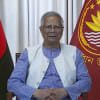Key questions for designing and implementing reforms

The interim government (IG) has commendably initiated a process of reforms designed to address the malgovernance associated with the outgoing regime. Commissions have been established to prepare an agenda for reforms in six areas: the constitution, public administration, judiciary, law enforcement, corruption, the electoral process. Two separate commissions/committees have been set up to: (a) define the key economic challenges immediately facing the country and (b) identify economic reforms needed to immediately address specific problems and to recommend longer term reforms. Recently, four other commissions have been set up covering health, women, media and labour. This is a heavy load to carry particularly for purposes of implementation. In each of these areas, we have in the past witnessed implementation failure of public policies as well as the progressive degradation of institutions of governance. It is presumed that the commissions and committees will come up with a body of worthy ideas on what needs to be done in their respective spheres of responsibility to reverse this process of malgovernance.
What is less clear to the public at this stage is the process through which the reforms will be enacted and who exactly will be expected to execute the reforms. All of us need to be reminded that the malaise in each sector in need of reforms did not exclusively originate during the tenure of the last regime. In many cases, the problems date back over several decades. Over each regime, failure to address and correct problems aggravated the malaise. The 16 years under the Awami League deepened the malaise to cancerous proportions where severe surgical intervention is needed to save our body politic from irreversible damage.
Given the long-term durability of the problems to be addressed by the respective commissions, we should note that various proposals for reforms, whether through innumerable commissions/committees or from civil society as well as the academic/research community, have already been presented over the years. I myself was involved, during my tenure as a member of the advisory council, in the first caretaker government headed by Chief Justice Shahabuddin Ahmed (December 1990-March 1991), in setting up 29 task forces (TF) to address the numerous problems related to the economy and governance process, which had accumulated during the Ershad era over the 1980s. The TFs were headed and populated by 255 of the best professional talents then available in the country, representing a diversity of policy perspectives who worked exclusively on a voluntary basis to prepare these reports within two months. Professor Muhammad Yunus headed the TF on self-reliance policies, and Professor Wahiduddin Mahmud, currently adviser for education, headed the TF on macroeconomic policy. A number of members of various commissions or committees under the present government, such as Abdul Muyeed Chowdhury and Debapriya Bhattacharya, were members of various TFs under the first caretaker government.
The TF reports were designed to serve both the incoming government elected to office in the March 1991 elections and the opposition in parliament. Sadly, the elected incoming BNP government made little use of the reports. A similar effort, this time by CPD, just prior to the 2001 elections, commissioned 16 TFs, drawing on 160 of our top professionals, to propose policies and reforms necessary at that period. These TF reports were also unaddressed by the then elected government. Other such policy reforms commissioned by particular governments have similarly remained largely unattended by the very government which commissioned the reports. Two such reports which come to mind include a report on Reform of Public Administration commissioned by the first government of Sheikh Hasina (1996-2001) and the report of the Education Commission set up by the AL regime in 2010.
The relevant point at issue remains the commitment of particular regimes to implement any process of reforms. There can be little doubt about the sincerity of any government headed by Professor Yunus to carry out reforms, particularly since it has come into office in the wake of a revolution headed by the youth of Bangladesh who as yet remain uncontaminated by the diseases which have infected the national polity over so many years. On the assumption that the IG remains bound to its commitment to pursue such reforms I present below, in synoptic form, some of the practical questions that need to be addressed by the IG in order to ensure that the reform process yields a more positive outcome compared to earlier efforts at reform.
1. Process of finalising reforms
i. Consultations of the draft reports of the commissions with whom?
- Political parties: what will be the criteria for determining which parties will be consulted?
- Civil society: who from a big contingent will be privileged for consultation?
- Youth: will this be restricted to those who led the uprising or include other groups who also participated?
- Stakeholders in issues covered by particular commissions
ii. There will be differences of opinion originating from groups within each of the above. Whose views will be prioritised in the final reports?
iii. Whilst all (?) political parties will be consulted in the interests of democracy, not all parties are equal in terms of their representative status and prospective electability. How will the IG take this political reality into account?
iv. The final draft of the reports based on the public consultation process will presumably be discussed and approved by the full Advisory Council (AC) and will be regarded as the definitive position of the IG on the reform agenda in a particular area. Will the reform agenda approved by the AC again be discussed by the IG with the political parties and how will disagreements be accommodated?
2. Implementation of reforms
When, how and by whom will the reforms finalised by the AC be implemented?
i. For reforms to be implemented the recommendations from the commissions will need to be operationalised through either policy proposals, legislative acts or even constitutional amendments. Who will be responsible for undertaking this task, the commission or the concerned ministries?
ii. Does the IG plan to begin implementing any or all of its proposed reforms during its tenure? If it decides to implement only a selection of reforms, what will be the guiding principles for choosing which of the reforms are to be implemented?
iii. Some political parties, particularly the BNP, have indicated that reforms can only be implemented by an elected government.
- What is the position of the IG on this particular position?
- Will it only proceed to implement reforms if the political parties give it the go ahead?
- Should the IG go ahead and begin implementing particular reforms if it believes such reforms need to be prioritised whatever may be the position of the parties?
iv. In the final analysis, meaningful reforms which impact the governance and lives of citizens will need to be carried forward on a sustainable basis by a government which expects to be in office for a period of 4/5 years. This would normally be possible only for an elected government. However, it can also be possible for an interim government to expand its tenure in order to implement its mandate for reform. Such a decision may encounter strong political resistance, particularly from the major political parties. Is the IG at all inclined to go down this route?
3. Implementation of reforms in the post-IG phase
If the IG is unwilling and/or unable to implement the reforms it may be appropriate to presume that the fate of any significant reform agenda will have to be dependent on its implementation by a prospective elected government. Keeping this in mind the IG will need to consider the commitment, willingness and capacity of the political party/parties, with any credible expectation of forming a post-election government, of actually implementing the reforms.
The implementation process will need to be sustained over the lifetime of the elected regime. This will not just need a sincere buy-in by the concerned political parties but the political vested interests of the party will also have to be in sync with the reform process and its intended outcomes.
It is this contradiction, both in regard to policies and reforms, between the interests of a prospective ruling party, its principal backers and influential social forces, that have historically frustrated the implementation of reform over the lifetime of successive regimes. Keeping such concerns in mind the following questions merit attention:
(i) If a government, mandated by a large electoral plurality, no longer finds it in its interest to initiate or persevere with the reforms, what can be done to ensure the sustainability of the reforms?
(ii) Will the reforms finalised by the IG be so designed as to ensure that prospective elected governments will remain mandated to carry out the reforms?
(iii) What oversight and accountability mechanisms can be built into the reforms to ensure continuous oversight of the reforms by:
- Parliament
- The judiciary
- Civil society
- Media
- The young people who are today demanding reforms
- Any other concerned body
From my limited experience in public affairs and rather longer exposure to the state of governance in Bangladesh, I have come to believe that the real problem faced by all governments has not been the deficiency of the policies or lack of reforms but the failure to implement its own policies. These failures originate from a lack of commitment, presence of vested interests which run contrary to the outcomes of policy, and a lack of competence due to the progressive degeneration in the quality of governance. Hopefully, Prof Yunus, the IG, and the various commissions will keep such a perspective in mind in finalising their recommendations for reforms and taking decisions on how to implement them.
Prof Rehman Sobhan is chairman of the Centre for Policy Dialogue (CPD).
Views expressed in this article are the author's own.
Follow The Daily Star Opinion on Facebook for the latest opinions, commentaries and analyses by experts and professionals. To contribute your article or letter to The Daily Star Opinion, see our guidelines for submission.

 For all latest news, follow The Daily Star's Google News channel.
For all latest news, follow The Daily Star's Google News channel. 











Comments